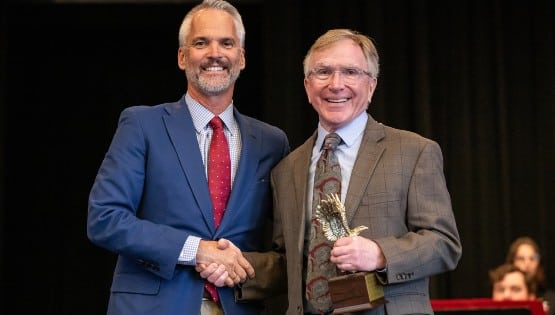With university fees continuing to rise, you may wonder if the payoff from getting a degree justifies the cost. Universities have been around for a long time and they still offer an effective path to a high lifetime salary. And they’re evolving to keep delivering value to students.
About Universities in the United States
Universities are teaching institutions that may also have a large research program. They not only teach students who’ve recently left high school, but also run graduate programs (e.g. masters programs) that may only be open to students with a degree already.
International readers should know that “college” in the US generally refers to undergraduate studies, which is only part of what universities do. “Going to college” means doing an undergraduate program. “Colleges” are schools that confer associate (2-year) and/or bachelor (4-year) degrees, not graduate degrees such as a masters or PhD.
Universities cover many fields of study, offering undergraduate, graduate and professional degrees. Professional degrees prepare you for a specific vocation, such law, medicine or engineering. Unlike universities in Australia and some other countries, where general degrees are 3-years long and professional degrees 4 years, the standard length of all bachelor degrees is 4 years.
Growth of University Education
Harvard was the first university in the United States and opened its doors for students in 1636. The first public university was the University of North Carolina, founded in the year 1786.
Since then, universities have proliferated. They exist as institutions of diverse sizes, age, locations, affiliations, and mandates.
Universities that provide 4-year undergraduate and graduate programs are known as college or university. They may be Catholic, liberal arts-focused, Jewish, Christian, historically black, public or private. Combinations of the terms also exist such as women’s and Catholic, Christian and the liberal arts, and historically black and public.
Public and Private
Public universities range in size from as few as 1,000 students up to around 52,000 students or more. They are state universities and operate under the state government bodies. Generally, they are cheaper than their private counterparts.
Private universities heavily rely on gifts, endowments, student tuition and the existing capital for financing. They can exist as single facilities or as many campuses throughout the state. They exist in the big cities, the remote communities and in other places.
Academic Fields
Whether private or public, Jewish or Catholic, universities typically have several or more academic fields, known as schools or colleges.
A university may have a College of Science, a College of Arts and a College of Engineering. Moreover, each college or school will also have departments such as departments of biology, geography, chemistry, and statistics in the School of Science.
Some universities focus on certain fields of study, but most of them provide a wide range of degree programs in various academic fields. You will definitely be able to find the course you need.
Popular college majors include business, health, social sciences, psychology, and biology and environmental science.
At a postgraduate level, business administration is the most popular study field. You can study for a Master of Business Administration, a degree which is commonly available online.
Programs
What a university offers highly depends on its programs. American universities and colleges provide 4-year bachelor’s degrees in addition to 2-year associate’s degrees, certificates, and short diplomas.
Some disciplines also allow students to combine degrees. In such cases, student graduates with two degrees after five years. They can take a double major, major and minor, double major or honors option, which means they will be able to tailor a degree to match their skills and interests.
University programs can be theoretical and academically oriented, unlike career-oriented schools. Often, a university program will not prepare you for a specific career or job but will provide you with broad-based exploratory education. You can apply this to a wider range of potential careers or go to graduate school for more specialized learning.
Dynamism
Does that mean universities only offer boring lectures? No, most are working hard to make the education exciting and relevant. They do this through international exchanges co-op options, participatory learning and field schools. For example, the College of Education at the University of Illinois offers study abroad opportunities to students every year.
Before enrolling in a university program, you should check the program pages to know what to expect. Some universities provide special programs to allow the students to earn both the undergraduate and graduate degree at a lower fee.
The modern university is dynamic too. They are adapting to cope with the needs of modern societies. Apart from educating students, universities engage in innovative research. They have contributed to many important discoveries and inventions.
In a university, you’ll have the chance to start a personal adventure. You can choose a university in any major location of your choice.
You can also study 100% online with some universities and colleges, or do a combination of online and in-person learning. Popular online degrees include business and arts. Certain hands-on subjects aren’t available (such as medicine).
Choosing a University
A university might be fun and will help you make more friends, participate in more sports, drama, debating and many other extracurricular activities. Such activities could be vital when it comes to your job search and demonstrating that you’re a well-rounded person. However, you should be certain that your university has active campuses that offer the kinds of extracurricular activities you’re interested in.
Decide on what you need and then look for a university that provides it. And if the deciding process is hard, check the university’s programs. You may be surprised at what a university offers.
Factors like tuition costs, scholarships and the distance from your home to the campus should be part of your considerations. You can also visit a university to make specific inquiries and see what it’s like for yourself.










